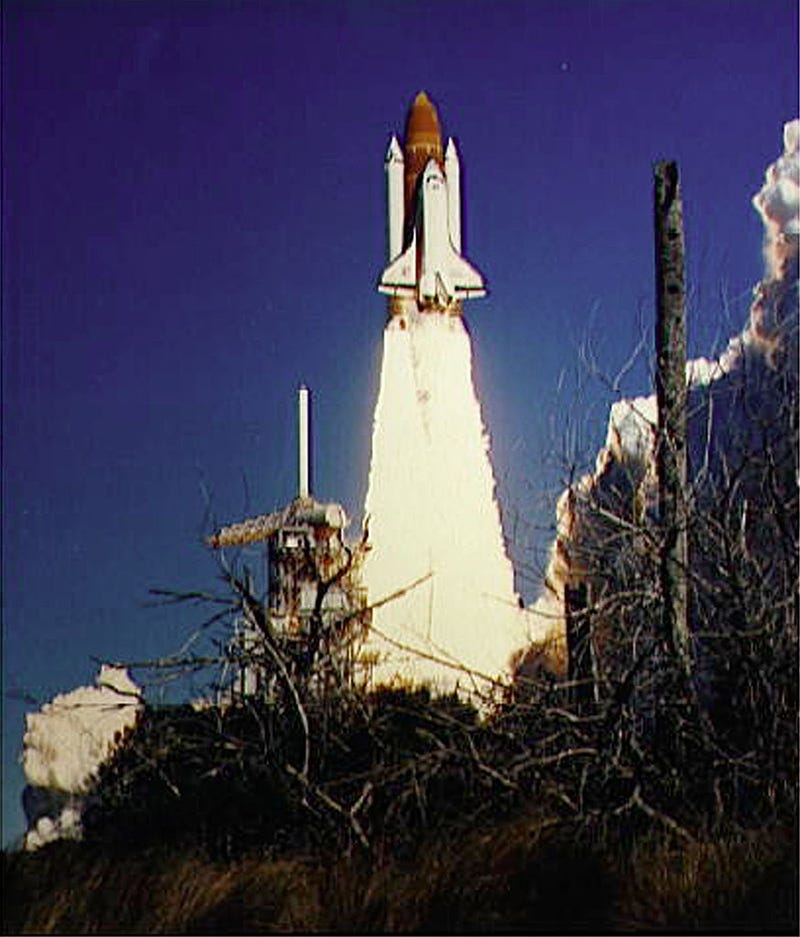
A piece of the Challenger space shuttle, destroyed in 1986, was recently discovered in the Atlantic Ocean, just miles off the coast of Florida.
According to a press release from NASA, the section of the shuttle was found by a television documentary crew.
However, the crew wasn’t searching for the shuttle in the Atlantic, it was instead looking for the wreckage of a World War II-era aircraft. Instead, the crew spotted a “large human-made object.”
Wanting to know what it was, being so close to the Florida Space Coast and the construction of the object, the crew reached out to NASA to see if they could identify it.
NASA official Michael Ciannilli shared that the discovery is one of the biggest pieces of the Challenger shuttle ever discovered.
"Upon first hearing about it, it brings you right back to 1986," Ciannilli said.
The discovery also comes weeks before the History Channel is set to debut a documentary about the spacecraft and the STS-51L mission that saw all seven people on board lose their lives.
In 1986 the shuttle took off from Cape Canaveral, Florida, and just 73 seconds into its flight, it disintegrated 46,000 feet above the ocean.
Francis R. “Dick” Scobee was in command of the mission, and the shuttle was piloted by Michael J. Smith. Astronauts Ronald E. McNair, Ellison S. Onizuka, Judith A. Resnik, and Gregory B. Jarvis were also on board. The seventh passenger was Christa McAuliffe, a high school social studies teacher from New Hampshire.
McAuliffe was specially selected to ride in the shuttle as part of the NASA Teacher in Space Project in July 1985.
After the shuttle was destroyed, NASA launched an investigation. It found that unexpected cold temperatures impacted "the integrity of O-ring seals in the solid rocket booster segment joints."
"While it has been nearly 37 years since seven daring and brave explorers lost their lives aboard Challenger, this tragedy will forever be seared in the collective memory of our country," NASA Administrator Bill Nelson said in a statement. "For millions around the globe, myself included, Jan. 28, 1986, still feels like yesterday."
Follow KNX News 97.1 FM
Twitter | Facebook | Instagram | TikTok



